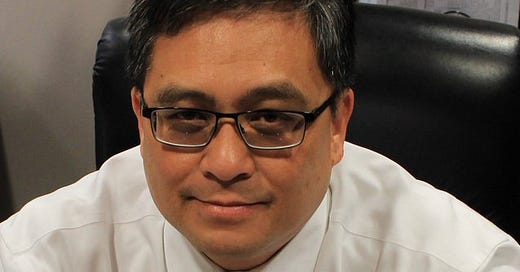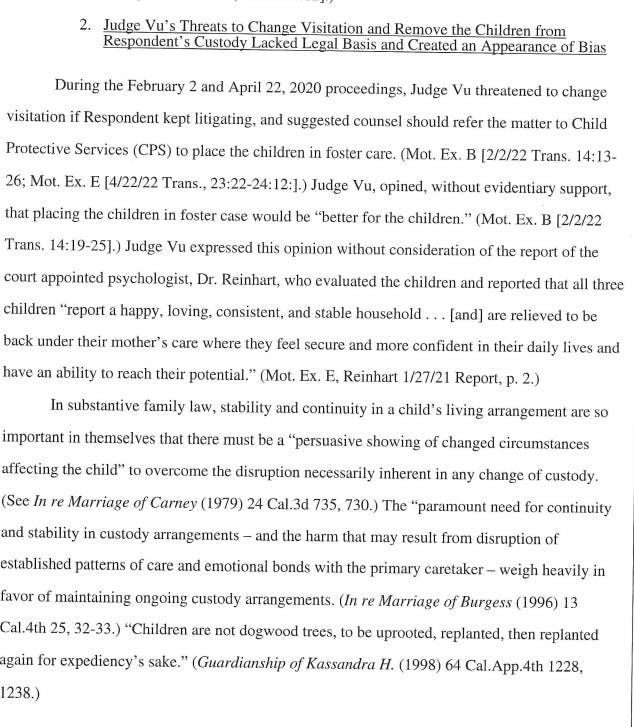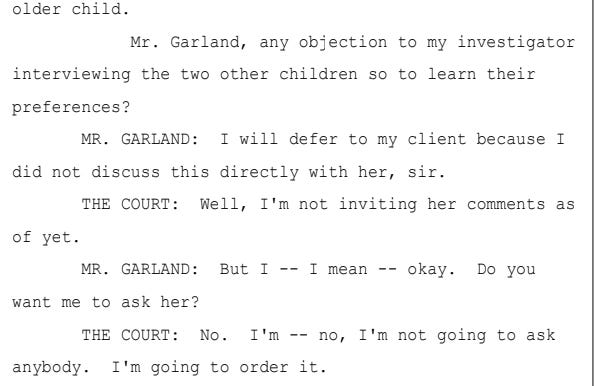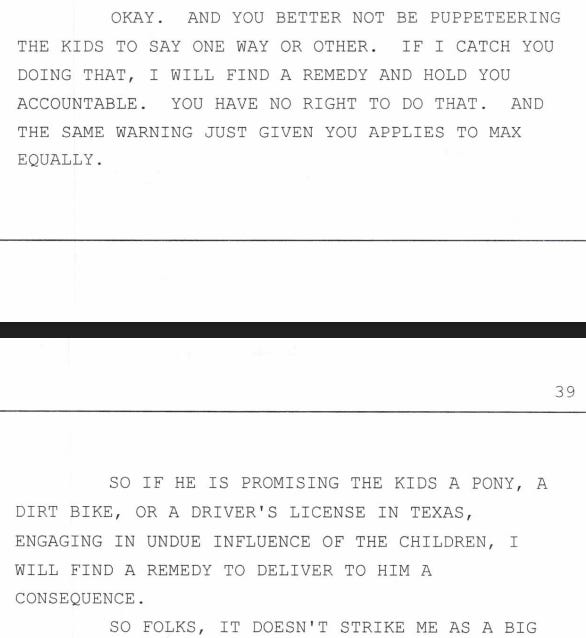
Note: In the podcast is an interview with Angel Camino, attorney for Max Black
In August 2022, a California woman had her judge removed courtesy of a legal slap down by another Superior Court judge.
It was a stunning victory for Christie Black, and the order may have reverberations for judges in that state: possibly beyond.
On July 20, 2022, Los Angeles Superior Court Judge entered an order disqualifying Orange County Superior Court Judge Nathan Vu from Christie’s divorce from her ex-husband Max Black.
It wasn’t merely that Cowan had Vu disqualified but what Cowan concluded which makes his order explosive. Some of Vu’s low lights are below, and they include: prejudging evidence, blatant bias, speculating on orders, bullying, and arbitrary and capricious decisions.
Christie told me that- as in her case- Judge Vu has a habit of threatening, particularly to mothers, to send children to foster care if certain behavior by the parent is not addressed.
Below is what Judge Cowan found in part.
Christie’s divorce has gone on since 2014 and it doesn’t seem to have an end.
I featured her story in December 2021.
One feature of her story is her ex-husband, in his younger years before they met- got involved with Sammy “the Bull” Gravano in a very significant drug conspiracy.
Christie knew nothing about this until Gravano was scheduled to be released from prison in 2017. An Orange County cop first warned her.
Despite this, the two are still fighting for custody.
Upon this order, the supervisory judge of Orange County, Julie Palafox, issued an order replacing Judge Vu with Judge James Waltz.
Judge Palafox pops up in Daniel Greenberg and Julie Holburn’s cases.
Judge Waltz had his initial appearance in a hearing on August 19, 2022.
The hearing was supposed to address a motion by Christie to reconsider a decision Vu had made regarding discovery.
She told me that in eight years, she’s never received any discovery from the other side.
Judge Waltz dismissed the motion, stating that the argument being made in court was not the one in the motion and that as such, the motion needed to be amended.
That should have been the end of the hearing, but a few minutes in, Judge Waltz issued his own motion. Here’s part of the transcript.
From there a hearing which was supposed to be about one specific thing related to discovery turned into an extemporaneous hearing on all aspects of the custody matter.
I spoke with Angel Camino, Max Black’s attorney, and he told me that such a move is a unique feature to family law, but that since the judge did not issue any orders, it did not violate rules of procedure or any due process Constitutional protections.
He said in family law judges will at times “take the temperature of the room” and “give the parties some direction, not orders.”
He further said this was done to try and reduce litigation: an ironic statement given that this case is past eight years with no end.
He told me that he could not comment on why it has taken so long because some of that is work product.
At one point, Waltz did seem to order something: the interviewing of the children.
I noticed this after my interview with Mr. Camino, though he suggested any orders would not be valid.
during another portion, he pronounced what he believed the final custody order would be.
Judge Waltz does talk about ending the case throughout his extemporaneous about ending the case, but Judge Vu seemed to also make a lot of statements which suggested he wanted the case to end.
“No more, this case has taken up more of the Courts time,” Judge Vu said in a March 2022 hearing, “To the extent that your clients have any more to say, there’s therapy.”
Judges bemoan the length of a case as if they are bystanders in its creation; they are the creators of these never-ending cases.
Judge Waltz noted that the custody trial was first scheduled in 2015 and has been delayed numerous times; even on his timeline, it will not be held until early 2023.
In the August hearing, Judge Waltz said discovery was not necessary even though Christie had never received any and that things would proceed to trial without it.
By September, he was considering a limited discovery.
Even more troubling is that in September, he both encouraged Max to bribe his children and strictly forbade.
Initially, he claimed that because the children were old enough- all now 15 and older- that any order he gave could not be enforced without their cooperation. So, dad in particular needed to do whatever was necessary to enforce his custody time.
A few minutes later, Judge Waltz forbade bribery.
Most troubling is that in September, Judge Waltz was ordering that he, not Family Court Services, speak to the children.
Then, at yet another point, Judge Waltz suggests that “child services” had already been appointed to conduct interviews with the children.
Mr. Camino said judges are given this latitude because it moves things along, but nothing has been settled and Judge Waltz has raised more questions than answers; this never-ending case still has no ending.
Post-Script
Check out the previous articles in this series: Part 1, Part 2, Part 3, Part 4, Part 5, Part 6, Part 7, Part 8. Part 9, Part 10, Part 11, Part 12, Part 13, Part 14, Part 15, Part 16, Part 17, Part 18, Part 19, Part 20, Part 21, Part 22, Part 23, Part 24, Part 25. Part 26, Part 27, Part 28, and Part 29.
To support more stories like this please consider contributing to the Orange County fundraiser.
Update:
In an earlier version, I stated that Mr. Black testified against Gravano. His attorney contacted me. He did not testify, as Gravano pled guilty. There was no testimony.





























Share this post